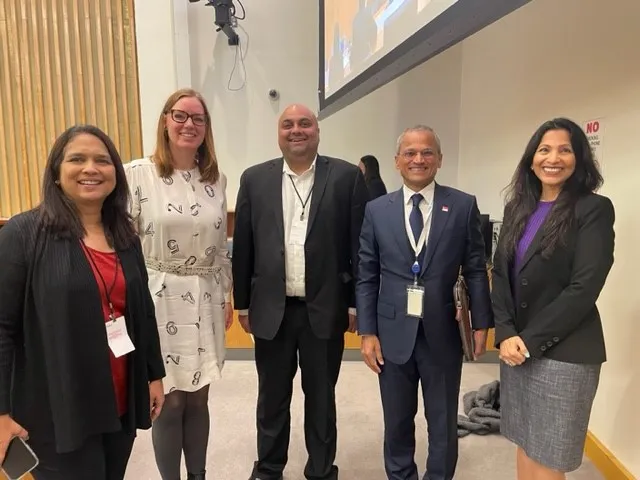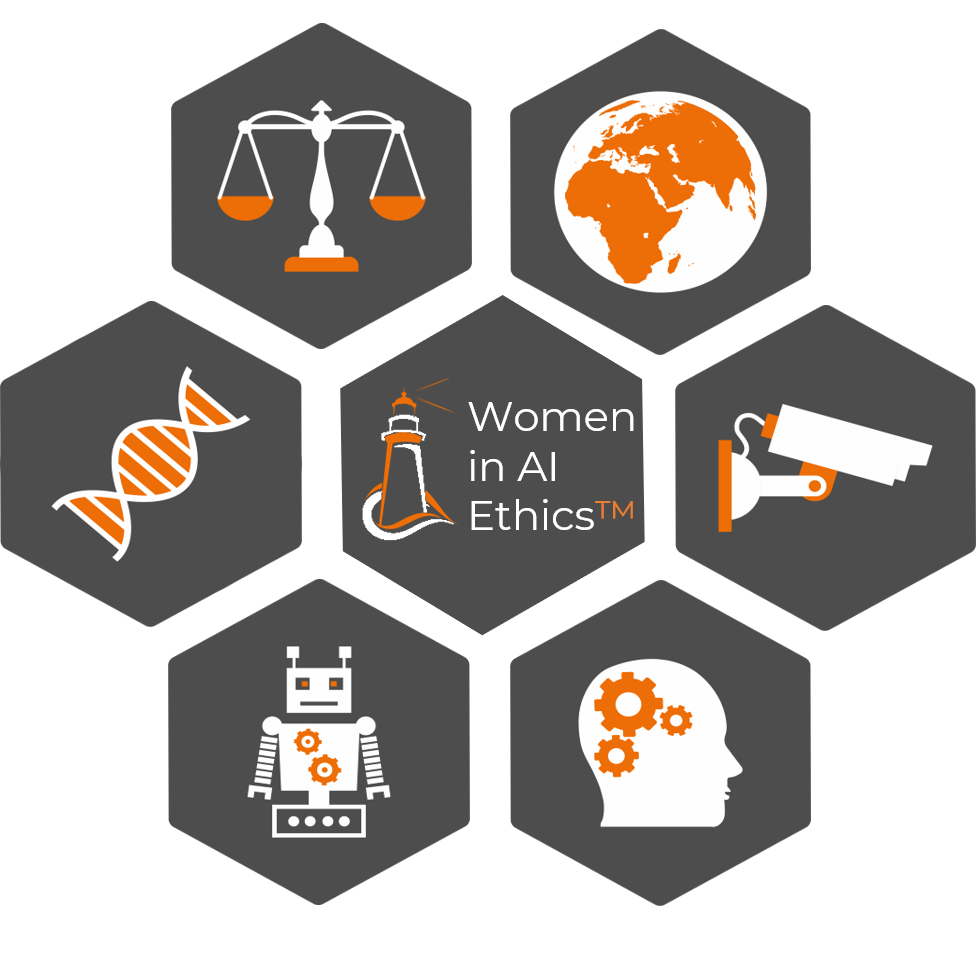
Photo Credit: UN — ITU
Introduction
Women in AI Ethics™ (WAIE) is a global community of AI researchers, privacy advocates, industry professionals, and other diverse experts working to keep humanity safe from the unintended consequences and harms of AI.
WAIE mission is aligned with several United Nations Sustainable Development Goals — SDG 4: Quality Education, SDG 5: Gender Equality, SDG 8: Decent Work and Economic Growth, SDG 10: Reduce Inequalities, and SDG 16: Promoting peace, justice, and strong institutions.
It was an honor to join an esteemed panel of experts this sunny fall morning on October 12, 2023 at the United Nations Headquarters in New York to discuss the transformative potential of digital technologies, including data and AI, as catalysts for accelerating the Sustainable Development Goals (SDGs) with H.E. Mr. Burhan Gafoor, Permanent Representative of Singapore to the UN, Neil Sahota CEO, ACSILabs, Inc, Anu Madgavkar, Partner, McKinsey & Company Global Institute and Sulyna Abdullah, Chief, Strategic Planning and Membership Department, and Special Advisor to the Secretary-General.
Here is our response to the posed question: “What strategies can be employed to address and reduce the risks and challenges associated with emerging technologies?”
The most pressing challenge is the lack of diversity in the tech industry. Women are half of the global workforce but only a third of technology roles. Women receive less than 2% of Venture Capital (VC) funding. This homogeneity shows up a harmful bias in AI products. For example, facial recognition systems that don’t recognize dark skinned women and generative AI models that perpetuate stereotypes by depicting doctors and computer scientists as male but nurses and homemakers as female.
But there’s another type of diversity that needs more attention and that is diversity in expertise and experience. For example: we often talk about algorithmic audits but auditing as a function exists in finance, we are using tech in healthcare but without inclusion of doctors and medical professionals, these attempts will fail.
Technology designed only by technologists is limiting our ability to innovate. We need greater inclusion of experts from underrepresented groups as well as non-technology fields in the development of emerging technologies to mitigate ethical blind spots.
A skilled and diverse workforce is critical for sustained progress on the SDGS. It has been estimated that recent acceleration in adoption of generative AI and Large Language Models (LLMs) could expose the equivalent of 300 million full-time jobs to automation. While the figures differ across countries, women are at a higher average risk of automation than men in many sectors as they tend to be overrepresented in jobs that are more vulnerable to automation. Increased investments in AI reskilling and training programs to prepare women and other at-risk communities for new and emerging roles in AI.
Globally, 40 million to 160 million women may be forced to transition between occupations by 2030, often into higher-skilled roles. If they do not make these transitions successfully, women will face a growing wage gap and may leave the job market entirely. We need more investments in financial safety nets and economic support for women, who bear the brunt of caregiving responsibilities, so they can fully participate in this new AI economy.
AI presents many new opportunities, but it also adds new privacy and safety risks to the ones that women and marginalized communities already face in the digital economy.
Generative AI has unleashed a new era of disinformation that we’re already seeing in political advertising. There is an increasing risk of fraud from voice cloning and other AI-generated deceptive content. Women and even school children are at risk from AI-generated synthetic media such as deepfakes used in revenge porn, harassment, and blackmail.
Literacy and educational programs focused solely on adoption of technologies without any safeguards expose our communities to increased risks. For example, many popular AI chatbots are not secure or private, which means personal information and passwords can be hacked and misused. WAIE has launched “AI for Communities” literacy programs at public libraries to help users become savvy users of these new technologies and ensuring they have the resources as well as knowledge to keep themselves safe.
We need urgent investments in public safety awareness campaigns about the growing risks from these emerging technologies. In addition to regulatory and policy interventions, we need fresh investments in an innovative ecosystem of new safety tools to keep women and other at-risk communities stay safe from threats posed by misuse and unintended consequences of these powerful technologies.
It is important to note that the tsunami of AI-powered disinformation and displacement threatens the safety and economic well-being of individuals and communities globally regardless of their gender and socio-economic status. To safeguard the progress on equity and equality made over the past century and stop the digital divide from turning into an AI divide, we must center the needs of underrepresented and marginalized communities around the world in the development of emerging technologies. We must guarantee access to computing, reskilling, and literacy resources for all so that everyone benefits from the promise of AI & other emerging technologies, and not just a privileged few.


